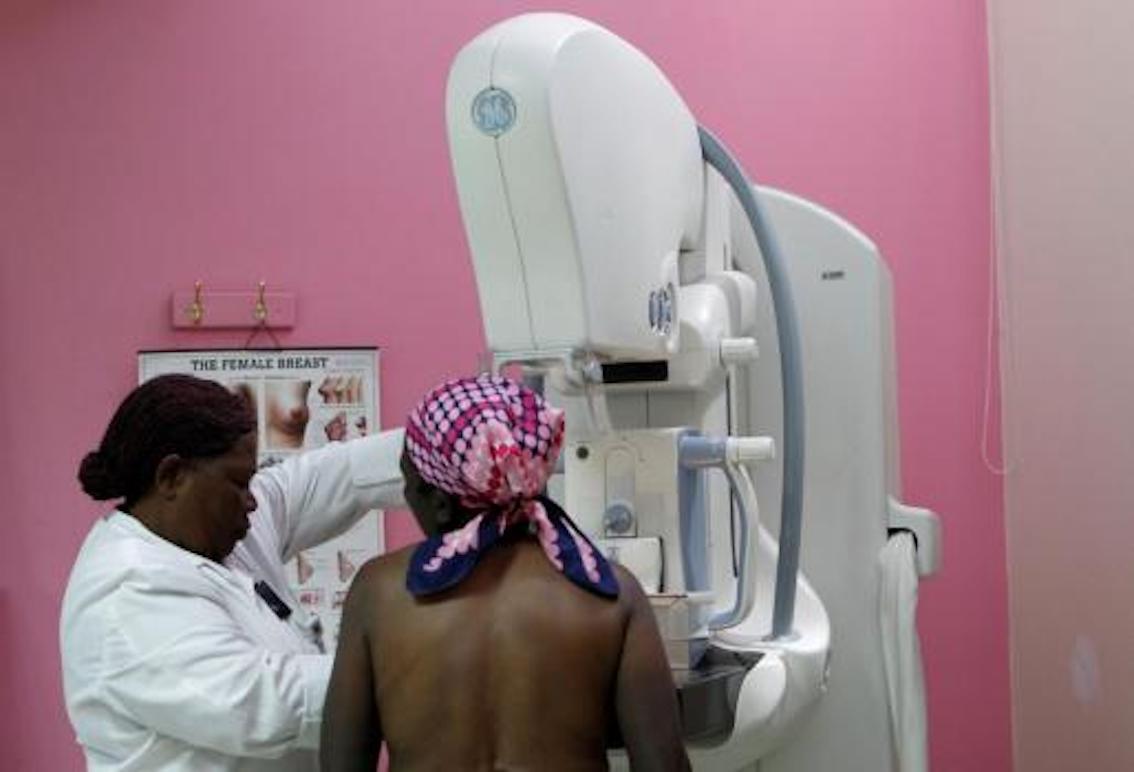It also pointed out that many types of cancer will likely be cured if they are diagnosed and treated in a timely and appropriate manner.
One in 5 people suffer from cancer at some point in their lives and one in 8 men and one in 11 women die from some type of cancer.
Breast cancer is the most common amongst new diagnosis, followed by lung, colon and prostate cancer.
"Cancer is one of the leading causes of death amongst children and adolescents and around 400,000 cases are diagnosed every year," said Dr Andre Ilbawi, from the WHO Department of Noncommunicable Diseases.
The WHO also warned of that "delays and lack of access" to affordable diagnoses and treatments, especially in low- and middle-income countries has worsened during the Covid-19 pandemic.
Before the pandemic, more than 90% of high-income countries could treat the sick, compared to less than 30% of poor countries.
A WHO survey showed that the coronavirus pandemic disrupted cancer treatments in more than 40% of countries.
"We know that fewer people have been able to complete their treatments and we anticipate that it will have an impact on the number of cancer deaths in the coming years,” said Dr Ibawi. “We are working to make models to help Governments understand the magnitude of that impact a little better, but it is difficult to say what increase there will be and what impact it will have on the number of cases of cancer and deaths from disease in the coming years.”
Breast Cancer
2.3 million new cases of breast cancer were diagnosed in 2020, which is 12% of the total number of cases.
604,000 cases of cervical cancer were diagnosed in 2020 and the WHO estimates that there will be 700,000 new cervical cancer cases and 400,000 deaths by 2030. That’s an increase in cases of 21% and increase in deaths of 27% from 2018-2030. Cancer can be prevented with the human papilloma vaccine and is treatable with surgery when detected in time.
One third of cancer deaths are due to smoking, being overweight, an unhealthy diet, lack of physical activity or alcohol consumption and 22% of cancer deaths are due to tobacco, according to the WHO.
Environmental factors, such as air and water pollution, are risk factors for lung, gallbladder and colon cancer and ultraviolet radiation from the sun is the leading cause of skin cancer.
Recommendations from the WHO include not smoking, exercising regularly, eating a healthy diet, lowering alcohol consumption, getting vaccinated against hepatitis B and papilloma and reducing exposure to intense sunlight.
The WHO also warned that some cancer patients have been reluctant to visit outpatient clinics or hospitals for treatment amid fears of coming into contact with Covid-19 patients.
Cancer patients are at higher risk of developing more severe and life-threatening cases of coronavirus.
"We must ensure that, despite the pandemic, people who already have cancer have access to diagnosis and treatment, because it can save their lives,” said Anselm Hennis, Director of PAHO;s Department of Noncummunicable Diseases & Mental Health. “There are tools available for prevention, diagnosis and treatment that tell us how we can achieve this.”


No comments
To be able to write a comment, you have to be registered and logged in
Currently there are no comments.